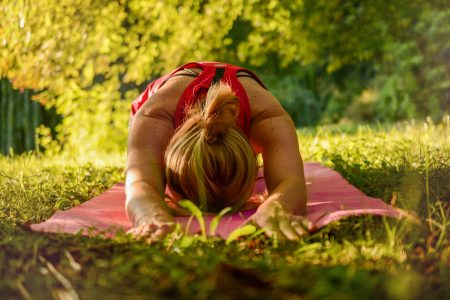Are you feeling busy and overwhelmed?
Do you have times when you’re so busy and overloaded with a long to-do list that it is creating stress and overwhelm? Often this is when self-care gets pushed down to the bottom of our list of priorities but this is when you could really do with bringing this back up to the top so that you are more grounded and present when you are getting through your list of jobs – which will make you more productive and efficient.
You might find it helpful to cut down on doing the things that don’t support your self-care, not the other way round. You might need to become super-efficient with disciplining yourself around the things that aren’t necessary, for example, you may want to let go of reading the news more than once per day or going on social media. Make a mental note of other things that might distract you and commit to ignoring or limiting these things where possible.
If you make sure you drink plenty of water, eat 3 nutritious meals and have healthy snacks, this will help to keep your energy levels strong and your blood sugar stable.
Can you let go of answering your phone or emails or text messages immediately and do them all in one go so you can have 3 quiet minutes to yourself to sit and breathe? This in itself can improve your concentration, which again can improve your productiveness and ability to plough through your to-do list.
Maybe turn off the notifications on your devices so your brain can concentrate on the task at hand rather than be distracted by pings and beeps coming in.
Maybe you can prioritise your self-care routines but do them for a shorter amount of time. Think about what sort of activities help you feel calmer, and more present, and prioritise these – this might be yoga/meditation or cardio exercise, or a bit of both.
It can be very calming and helpful to ground yourself. This can be done in many ways. Some suggestions include:
- burning some sage or incense
- mindfully and consciously walking in nature, connecting with the sounds and smells around you.
- immersing yourself in water, some like cold water swimming and others prefer hot baths – whatever works for you.
- walking barefoot
- closing your eyes and noticing your breathing – just for a few moments
- closing your eyes and noticing your physical body – just for a few moments
Grounding yourself can help calm your thoughts, your busy mind, your anxiety, your fear, your restlessness and your frustration. Give it a try and see if it helps.
Prioritise the things on your to-do list, and accept that you may need to leave some for another day, so you can have some relaxation time before bed.
Getting enough sleep is vitally important for your overall health and well-being and especially so if your waking hours are very pressured. Having good “sleep hygiene” is so important if sleeping can be very challenging for you.
Some tips for improving your sleep:
- decide how many hours sleep are best for you and working back from when you need to wake up, calculate when you need to start heading up to bed.
- start winding down approximately one hour before you want to go to bed – have dimmer lighting in your rooms, turn off the “blue light” on your digital devices, come off all devices and screens one hour before bed as these are all mentally stimulating and you want to be relaxing the thoughts and stimulation at this time.
- If you enjoy watching TV in the evenings, avoid overly dramatic programs – including the news, thrillers and whodunnits. Light entertainment and comedies are more supportive.
- Don’t over-think your need for sleep as this can have a counter-productive effect. Don’t toss and turn – maybe listen to a “Body scan” meditation or an audiobook (a not too stimulating one) or read if these things help you.
- Getting physical exercise and high light levels in the daytime by walking outside, especially when its sunny and especially in the middle of the day, can also support your sleep by promoting your circadian rhythms.
- Avoid caffeine after 1pm.
- Avoid napping after about 4pm. From a Chinese-medicine viewpoint having a short afternoon nap at about 3pm is the most effective for calming down the nervous system and catching up on any missed sleep, which in turn can promote better sleep patterns.
- Avoid eating too much too late. There is an ancient Chinese proverb – “Eat breakfast like a King, lunch like a Lord and dinner like a pauper”. Load up your calories earlier in the day as these give you energy to do things. In the evening, your digestive system is switching off and going to bed with a full and heavy stomach can really inhibit good sleep.
This is just a small sample of tips that can help improve sleep so do think about others that you know help you and keep your sleep high on your list of self-care.
Prioritise your self-care frequently and especially during your busy times. This makes you more efficient and productive without sacrificing the importance of your own physical, mental and emotional health and well-being.

